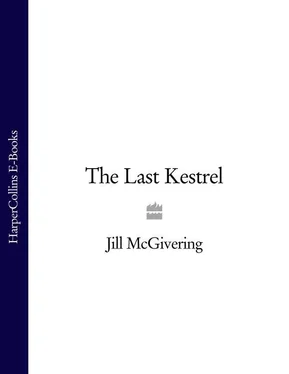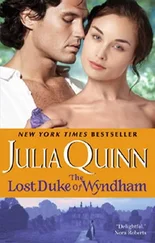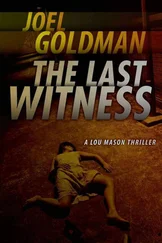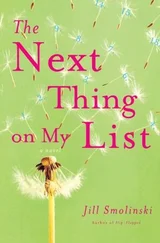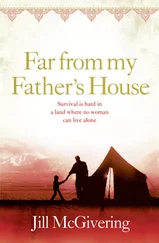‘I’d love to,’ she said. She too was staring at his toes, at the neat square cut of his nails. ‘Really. But I just can’t. I am sorry. Perhaps I could—’
‘Of course.’ He interrupted her at once, nodding and waving his hand as if to bat away the awkwardness between them. ‘I’m sorry. Please. Forgive me.’
Suddenly they were both on their feet, making hasty, nervous movements and hiding their shame with a flurry of meaningless arrangements, confirming what time the car would take her to the airport the next morning and discussing the final settlement of the driver’s bill.
Afterwards she had gone back to her room, ordered a fresh pot of chai sabz and a plate of Afghan bread and jam and immersed herself in her story. It was only later, when her friend at The New York Times emailed to tell her about his death in Helmand, that she stopped, shaken, and really thought back. By giving up work with journalists and instead signing a contract to go into conflict zones and translate for the military, he was risking his life. Suddenly it became clear to her why he’d done it. He’d been desperate for the money so he could escape.
‘Ellen Thomas?’ Someone was hissing her name into the darkness, through the lifted tent flap. The tone was more accusation than question. When she emerged, a young soldier was pacing outside, looking impatient. ‘The Major sent me. Follow me.’
He led her across the camp, then turned sharply right into a dim narrow corridor between hessian sandbag walls. Engineers corps, she thought. Build anything. He pushed open a plywood door and ushered her inside, down a hallway and into an office.
It had the dead smell of an underground bunker, ripe with dust and recycled air. It was poorly lit by low-wattage bulbs, strung on wires that were pinned in loops along the wood ceiling struts like Christmas decorations. An old air-conditioning unit was panting against one wall, making memos and notices on the board above it flutter and crack.
‘Ellen?’
A short, compact man rose from behind a desk and came forward to greet her. His gaze was direct, his eyes a surprising blue. Intense, she thought at once. Intelligent. He was muscular but the creases round his eyes suggested he must be about her age, forty something. His hair was blond and clearly thinning, the dome of his head glowing warmly in the mellow light, offset by arches of thicker growth above his ears.
‘Major McKay,’ he said. ‘But call me Mack. Everyone does.’
He pumped her hand, his fingers hard in hers.
‘Thought we’d lost you,’ he said. ‘Coffee?’
He nodded to the young soldier who bustled about at a water heater with polystyrene cups and powdered milk and handed them drinks.
‘Well.’ He folded himself onto a chair and gestured to her to sit too. ‘The famous Ellen Thomas. I’m honoured.’
‘I’m afraid you’ve been misinformed.’ The coffee smelt strong and stale.
He smiled, showing even teeth. Somewhere behind him, a clock was ticking. Civilizing the desert, she thought. War was surreal.
‘Read a lot of your stuff,’ he said. ‘Brave woman. Hope we’re going to pass the Thomas test here.’
She smiled back. ‘Not brave,’ she said. ‘I just report.’
His manner was confident. Yes, she thought, in a crisis, this was a man you’d trust.
‘Not sure I always agree with you, though.’ He tutted. ‘That piece on Basra.’
Oh no, she thought. A man with opinions on my work. She lowered her lips to her polystyrene cup and watched his face as he took issue with her argument on Iraq. His look was sharp. He was articulate, clearly. A good adversary. But a debate on Basra wasn’t what she needed right now. Iraq already seemed a long time ago.
She pretended to listen, nodding in increments and scanning the room. A war room. Shared and impersonal. Desks piled with folders and papers. Behind him, a flip chart with notes written across it in marker pen in a loopy, sloping hand. ‘What are we fighting for?’ read the heading, underlined. Then a list: Cathedrals. Real cider. Bangers and mash. Small cottages. Little old ladies in teashops. She wondered which young wags had brainstormed that and from which part of rural England they’d been plucked. She became aware again of the clock’s tick. Mack had stopped talking.
‘So what’s the plan?’ she said. ‘What’s this offensive?’
He paused, watching her, then got to his feet. ‘We’re about to take new ground.’ He drew her across to an area map tacked to the wall and used his pen as a pointer. ‘Here’s the camp, where we are now. Early tomorrow morning, B and C Company will move into position in this area of desert here.’ He pointed to a white space some distance north into the desert. No tracks were marked. The only roads snaked from the camp in different directions, to the south and west. ‘The Danes will provide backup here. The Estonians here. Once they’re in place, B and C Company will launch a fresh attack here. Crossing the river at this point. Into this area of the green belt.’
She nodded, taking in the distances, the contours. There were several villages marked in the target area, clusters of squares and dots.
‘How well fortified is it?’
He shrugged. ‘Pretty well. The enemy’s been dug in there for more than two years.’
They’ll have an established underground bunker system then, she thought. Carefully constructed traps.
‘Mines?’
‘Almost certainly.’
She looked again at the map, trying to imagine the terrain. ‘So you expect resistance. Probably a lot.’
‘We’re always prepared for contact with the enemy,’ he said.
‘Any estimate of timings?’ She pointed to the first village, high on a ridge above the river. ‘When do you think you’ll reach here? Noon?’
‘Depends.’ His eyes were thoughtful. ‘Depends how much resistance there is.’
She finished her coffee. She wanted to sort out her kit and repack for the field. Today might be her last chance to eat fresh food, shower and get some sleep.
‘Now,’ he was saying, ‘you need to have a think. I have to make it clear to you: it will be dangerous out there. We can’t guarantee your safety. You understand that? So you need to weigh up the risks against the gains. Of course, you’re a reporter. You’ve got a job to do. But you may think it wise to stay in camp tomorrow. I can arrange a briefing for you here. Then the following day we can review…’
She dropped her cup into the dustbin and turned to face him. He came to the end of his speech and paused. ‘Don’t feel,’ he said, ‘you have to give me an answer now. Think it over.’
‘I’ve thought,’ she said. ‘What time do we leave?’
Almost two weeks earlier
Late in the night, a sound woke Hasina. She opened her eyes with a jolt and listened. Abdul, her husband, breathed heavily beside her. The stale but comfortable animal smell of him filled her nostrils. The room was clotted with darkness. She eased herself off the cot and wound her long cotton scarf round her shoulders and head.
Outside, she poured herself water from the jug, drank a little, then wet the end of her scarf. The night air was fresh and earthy, after the breath-thick room. She crept round the side of the house, scanning the mud yard and the running blot of the low boundary wall. The goats stamped, moving nervously in a half-circle on their tethers. Beyond them, the field of standing corn stretched away in a solid dark block. She stood, hidden in the shadow of the house, and rubbed the damp tail of her scarf round her neck. Nothing.
She looked out across the land. She knew every stone, every ditch of this field as well as she knew the bumps and contours of her son’s body, of her husband’s body too. It was good land. It rose like a blessing out of the barren desert, green fields made fertile by the sudden appearance of the river. The soil had fed as many generations of her husband’s family as anyone could remember. Like the people, it struggled to stave off exhaustion. She ran her eyes along the raised ridge, looking for fresh signs of collapse. When the rains were heavy, the top layer could lift and run away with the torrents of water. Their carefully dug irrigation channels silted up and, once the rain stopped, they squelched through them, feeling the mud ooze between their toes, to sieve the earth between their fingers and pile it back.
Читать дальше
